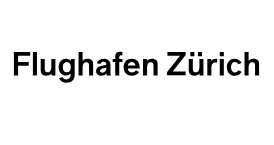We are seeking a highly motivated and curious Ph.D. student to join the Inorganic Environmental Geochemistry group at ETH Zurich and Eawag, the Swiss Federal Institute of Aquatic Science and Technology, an interdisciplinary team of researchers studying biogeochemical cycles of trace elements across different environmental compartments. Our mission is to understand and predict environmental distributions of health-impacting trace elements to prevent health hazards, today and in the future. The position is offered in the framework of a recently funded SNSF project with the goal to improve our understanding of the atmospheric cycling of the essential micronutrient selenium (Se) by integrating measurements and a computational atmospheric Se model. Knowing the chemical forms (speciation) of Se in atmospheric wet and dry deposition fluxes is essential because it determines its fate in surface environments, i.e., its mobility, bioavailability for plant uptake and, ultimately, its health impact. This knowledge is key for developing sustainable management strategies to ensure adequate and safe levels of Se, in agricultural systems as well as in other ecosystems.
Job descriptionYou will work on the extension of our global atmospheric Se cycling model, integrated into the global modeling system ICON-ART (ICOsahedral Nonhydrostatic - Aerosols and Reactive Trace gases), from total Se deposition towards Se speciation. The focus will be on transformation pathways of atmospheric Se compounds that govern the chemical form of Se in aerosol particles and precipitation. An essential component of the project will be the assessment of the model results with atmospheric measurements, as well the use of statistical inference methods for hypothesis testing. Finally the improved model will be used to provide maps of Se speciation in atmospheric inputs to the Earth's surface, and how these Se deposition patterns may change under future climate and emission pathways.
ProfileAs the ideal Ph.D. student, you have a master's degree in atmospheric and/or climate sciences, geochemistry, environmental chemistry, physics, computational sciences or a closely related discipline with a strong interest in numerical and quantitative science. Fluency in English, both verbally and written, and good communication skills are a must, as is experience with a higher programming language (e.g., Fortran, C, R, Python). You are a self-motivated and creative person with critical thinking skills. You like to work as part of an interdisciplinary team, and love to advance your understanding of biogeochemical processes and mechanisms.
We offer - Training opportunities with leading experts in modeling, biogeochemical cycles, and atmospheric processes.
- Support programmes and networking opportunities such as attending international conferences.
- An interdisciplinary research group combining expertise in biogeochemical analytics as well as statistical and mechanistic modeling.
- A supportive working environment that values the well-being of the whole group.
- Flexible working hours and possibility of working from home, promoting a healthy work-life balance.
- A competitive Ph.D. salary according to the ETH standard . Funding is secured for 4 years.
> Working, teaching and research at ETH Zurich
We value diversity In line with our values , ETH Zurich encourages an inclusive culture. We promote equality of opportunity, value diversity and nurture a working and learning environment in which the rights and dignity of all our staff and students are respected. Visit our Equal Opportunities and Diversity website to find out how we ensure a fair and open environment that allows everyone to grow and flourish.







